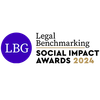Key Takeaway Points
- UKSC rejects the concept of an AI inventor, saying that an inventor must be a human being;
- UKSC also insists that UK patent application cannot proceed to grant without at least one human inventor;
- Innovators in this space should identify human beings who are responsible for training and/or configuring the AI which is used to produce results which they believe underpin a patent application, and identify those human beings as inventors.
On 20th December 2023, the UK Supreme Court (UKSC) handed down their decision regarding the appeal in the UK part of the DABUS family of cases.
Background
In summary, these cases ask the question whether an AI can be named as an inventor and whether a patent application could proceed without naming a human inventor. This matter has been considered in various guises before courts in Australia, Germany, Israel, New Zealand, South Africa, South Korea and the US. The matter has also been considered at the European Patent Office (EPO). The overall message has been almost wholly negative in that all forums (except South Africa) have insisted that an inventor must be a natural person. The decision from the UKSC is the latest decision on this family of cases and they have not provided any surprises.
The UKSC Decision
In short, the appeal was dismissed. This clarifies the position under current UK law that a patent application cannot proceed to grant without an inventor being named as a natural person, i.e. a human being.
This is what we expected from the UKSC, as detailed in our previous note. However, this does not mean that organisations who believe that their use of AI is generating interesting results should be dissuaded from pursuing a patent application to protect those results.
In view of the decision from the UKSC, it is not a good idea to pursue UK patent applications with a sole AI inventor. The UKIPO will now be further emboldened in their view to reject these applications. Many other jurisdictions across the world are also taking a similar view on AI inventorship as the UKSC, including the EPO.
Recommendations
The UKSC has made it clear that an inventor must be a human being. It is therefore incumbent on applicants to identify the human being or group of human beings which devised the inventive concept which underpins their invention.
In the case of an invention where the results have been generated using AI, one may consider the following in order to identify the inventors:
- The human beings who led the training of the AI;
- The human beings who led the configuration of the AI; and/or
- The person who provided the overall direction regarding how to solve the problem using the AI.
If you would like to talk about artificial intelligence and its contribution to your inventions, then please do not hesitate to contact me.





















